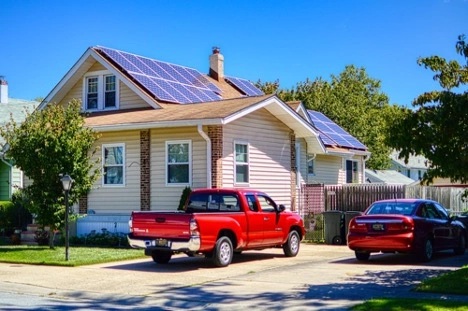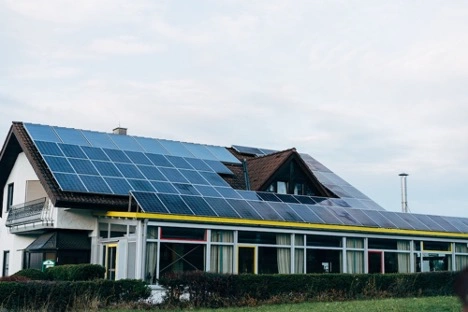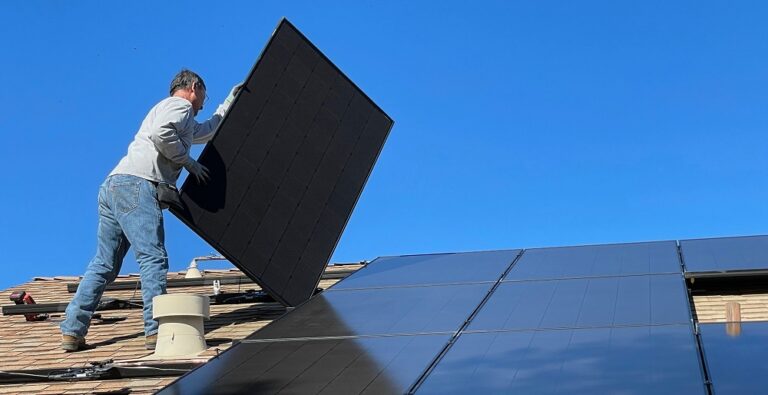How Long do Solar Panels Last?
Solar panels have become quite popular in recent times. The reason is the increasing electricity prices across the globe. Solar energy is a greener source of energy with no emissions. This makes it better than any power source that consumes fossil fuels. That’s because the latter pollutes the environment. Solar panels are also better in a way that they need no maintenance since they have no moving parts. This is the reason why they have long warranty periods.
Manufacturers claim that they design panels to last for at least a decade. However, there are varying lifespans of solar panels based on their quality. Some last longer than users’ expectations, while others degrade in less time.
Let’s look at how long these panels last and how to maintain them to increase their life expectancy.

Why do Solar Panels degrade?
Everyone around the world wants to make their lifestyle sustainable. And there is no better way than going for solar in this regard. All you need is a bunch of solar panels with batteries based on the power need. The longer the panels generate power, the more money you’ll save. On average, solar panels usually degrade to their full after 25 years. But their performance keeps going down over time.
The degradation of panels is due to their exposure to sunlight. Also, extreme weather conditions play a key role in this regard. Their yearly degradation rate is almost 0.5%. This means that after 25 years, the panels won’t be of any use. Though you can’t stop this degradation, you may use durable panels for your home or workplace.
Factors Affecting the Lifespan of Solar Panels
Here are some factors that affect the lifespan of solar panels:
· Climate Conditions
The climate conditions influence the efficiency of panels to a large extent. This also involves the installation site of them. You cannot install solar panels anywhere at your home, nor can you do it in any region. It would help if you researched the weather’s impact on your panels’ longevity. For example, you may consider hot weather a good sign for your panels. That is because they will take sunlight and convert it to power. But that’s not the case. Panels are at greater risk of degradation over time under such conditions.
Humidity also plays a part in decreasing the efficiency of panels. During humid conditions, a minimal layer of water starts forming. As a result, the sunlight doesn’t reach the panels, and their performance is affected. Other factors, such as high winds, can impact their performance in a negative way.
· Quality of Panels
The quality of solar panels is what makes a big difference in the long run. And with every passing day, you start to notice it as well. You may also look at the production warranty of solar panels to check their quality. Panels with a 25-year warranty are better and can last long enough.
· Installation and Maintenance
Improper installation of panels does not let them generate the required power. And they degrade faster also. Suitable installation of panels ensures that they are getting the required sunlight. So, it would help if you chose an experienced installer to get this job done. Moreover, choose a company that offers maintenance checks from time to time. This lets you avoid many issues in the long run.
One of the major reasons to buy solar panels is that they need less maintenance. Though you must care for them to increase their lifespan, they are still quite efficient. For example, dust keeps accumulating on your panels. So, you must clean the panels on a regular basis. This will avoid their degradation and improve performance. Besides, since they have no moving parts, you won’t have to invest much in their maintenance.
All these factors can impact the performance of your panels in a negative way. So, you must keep them away from dust and debris and clean them. Also, you must ask your solar company for preventive maintenance of panels. This may seem normal, but it can increase your savings to a large extent.
How Long do the Panels Last?
With the increase in the use of solar panels across the globe, the number of companies has also increased. In the meantime, the quality of panels has also improved. But still, the question that roams in people’s minds is, “How long do the solar panels last?”. And without a doubt, every consumer would want to know it. The reason is that they are going to invest a huge chunk of money.
The latest models of solar panels have a life expectancy of more than four decades. That means at least two generations can rely on a single set of panels. But, in the least possible case, the panels won’t degrade for at least half of that time. The warranty ensures that the panels’ efficiency will not go below 80% in that time. But it also depends on whether you take care of them or not. If you leave them aside for long, the debris won’t allow the transfer of heat. As a result, the efficiency will decrease.

It’s impossible for solar panels to stop generating power. But their efficiency gets affected because of several factors mentioned above. And over time, you may have to replace all the solar panels. The warranties offered by companies are not for production only. Some manufacturing companies offer warranties for certain equipment as well. This involves the damage caused by fallen branches or extreme weather conditions. So, solar panels’ lifespan is between 25 and 40 years, with varying efficiencies.
Solar inverters have a shortened lifespan since they keep working to convert DC into AC. They usually last 10 to 12 years, and one unit costs around $500-1000.
Which Solar Panels Last Longer?
The quality of solar panels determines their lifespan. Manufacturers classify them into Tier One, Tier Two, and Tier Three panels. Tier one panels are of the highest quality and last longer than others. Also, the power output of these panels doesn’t change much even after the warranty period. This is one of the reasons why people plan to invest in them and enjoy them for the rest of their lives.
Tier one panels’ degradation rate (0.30%) is also lesser than the other two. Tier two panels’ rate is 0.5%, while Tier three has a degradation rate of 0.8%. So, even though the capital cost for the former is high, the return on investment (ROI) is also better.
How to Extend the Lifespan of Solar Panels?
Solar panels are able to cope with harsh conditions for longer periods. This is one of the reasons why they are durable. If you keep them in a better condition, they may serve you for your whole life. Most panels these days have a monitoring system. Check the performance of panels on a regular basis via that. You may also check the output using the solar inverter. This will let you know where the panels are lacking. And you may take certain measures according to that output.
Some of the steps you may take to increase the lifespan of panels include:
- Clean them on a regular basis to make them work at their best.
- Don’t let dust or debris settle on the panels. Clean them with a brush.
- Use warm water to clean any stubborn particles. Don’t try to use chemical cleaning methods without the vendor’s recommendations.
- Refer to the vendor’s guide before using anything to clean the panels. If you have no idea how to do it, call a professional cleaner.
- Keep the shades away from the panels as much as possible. This is because shade blocks the sunlight on the panel. As a result, power generation decreases.
- If you live in an area where winds blow quite often, tie the panels with some support. This won’t let the wind harm them. Also, do not install the panels if you live in a hilly area. This is because the sun comes out once in a blue moon in these areas. Moreover, snow falls quite often there, and you may have to suffer in the long run. So, all your investment may go in vain.
- Replace the panel as soon as you see a crack in it. Because it will allow water to enter, which is dangerous for the panel, but replace it with a panel of the same quality.
Maintaining solar panels is more crucial than their installation. So, it would help if you used a wide range of strategies to do it. Also, it is better to take recommendations from manufacturers. Before or while using any maintenance techniques, refer to the guide provided.
Conclusion
Solar energy is the best sustainable energy source at the moment, with no emissions. It can increase your savings to a large extent by letting you get rid of electricity bills. But before buying or installing them, consider the lifespan of the panels. Also, install them in a place with no shade and more sunlight. Or else they won’t work at their best.
Choose the best manufacturers and let them handle your case. Keep the panels’ efficiency high by maintaining them from time to time. Inspect them on a regular basis and see how they bore fruit for you.
